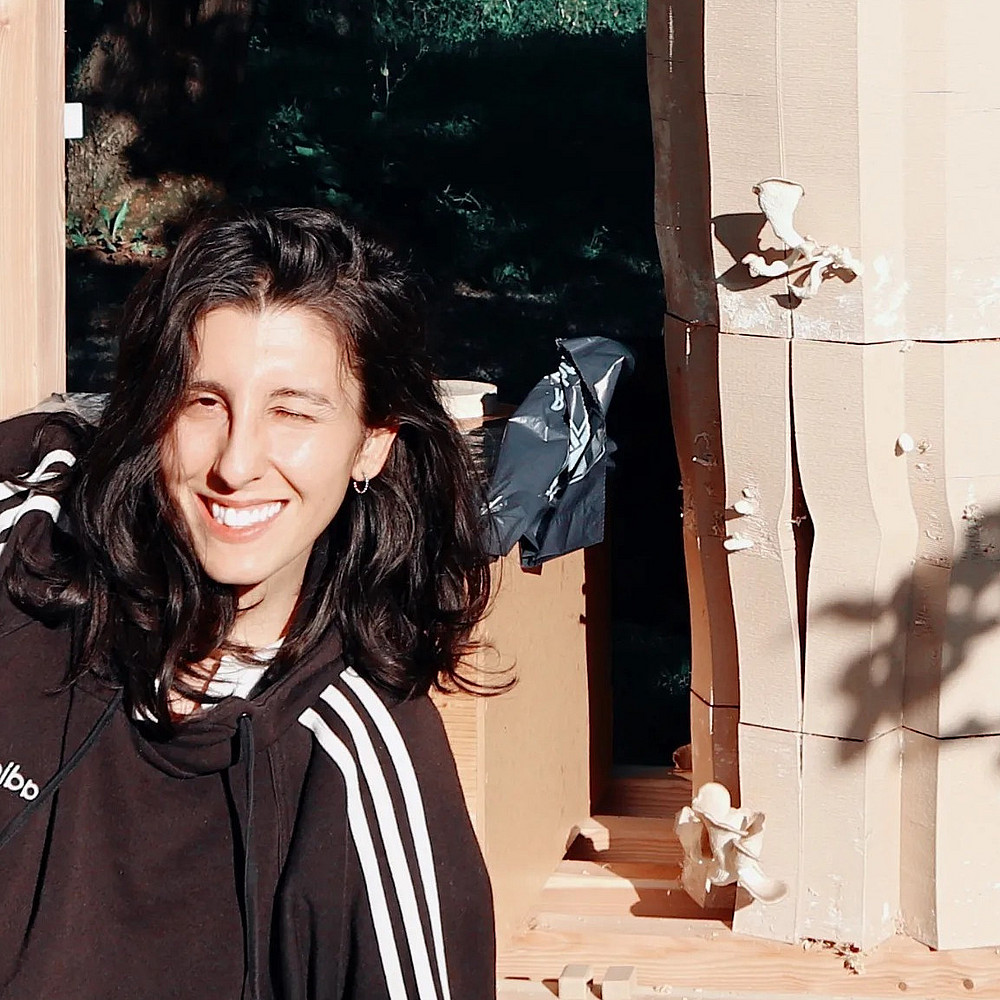Asya Ilgün
Living Architecture for (Honey)Bees: An Ecosystem Effective Biohybrid Design Framework
In 2024, Asya Ilgün completed a Ph.D. in architecture at the Technical University of Graz, specializing in digital and biological technologies to develop biohybrid structures that support both human and nonhuman life forms. Her research focused on the design and fabrication of a mycelial beehive, an innovative concept within the FET-EU project HIVEOPOLIS. This work formed the foundation of her dissertation and was extensively documented across six of her seven published papers.
During her doctoral studies, Asya was a researcher at the University of Graz's Artificial Life Lab, within the Institute of Biology. As part of the COLIBRI team (Complexity of Life Basic Research and Innovation), she engaged in research at the intersection of ethology, computational modeling, and biofabrication, contributing to honeybee biology, hive design, and material experimentation with bioplastics and mycelium composites. Her approach combined experimental methods with digital design and fabrication techniques to investigate multispecies interactions within artificial habitats.
Building on a background in computational design, Asya Ilgün holds a master's degree in architecture from the Royal Danish Academy’s CITA Studio, where she explored advanced material design techniques, particularly fused filament deposition, to reimagine architectural spaces that accommodate nonhuman species. Her commitment to transdisciplinary and multispecies collaboration led her to co-initiate the I.N.S.E.C.T. Summercamp in 2022. Now in its third year, this initiative fosters biohybrid design methodologies through an inclusive, co-creative approach that bridges academic and non-academic communities.
Her dissertation explored the intersection of life sciences and design research to mitigate the ecological impact of human activities. Conducted within the HIVEOPOLIS project (FET No. 824069), the research aimed to enhance the resilience of honeybee colonies—key models for studying biological-cultural interactions in ecosystems. The study examined the long-term transition of honeybees from natural habitats to human-built environments, addressing the consequences of habitat alteration on mutualistic relationships between honeybees and wood-decay mycelial fungi. Her work investigated the potential of mycelium composites as sustainable thermal insulation materials for hives, integrating modular, topological, and spatial design strategies to harness the self-organizing capabilities of both fungal networks and honeybee superorganisms.
Beyond honeybee hives, her research extended to the development of physical prototypes, including modular insect habitats and an exhibition piece for a public museum display. By employing parametric modeling and digital fabrication, she developed a lightweight, scalable toolset for 3D-printed hive components, allowing for rapid prototyping and seasonal field testing. Her iterative design process, utilizing clay and polymer scaffolds, culminated in the field deployment of a mycelial beehive, with findings shared through a final open-access publication.
In her postdoctoral work, Asya continues to exhibit and expand on biohybrid design research. Notable activities include showcasing the Mycelial Beehive from HIVEOPOLIS at the Communication Parcours at the Berlaymont Building of the European Commission in Brussels (October 2024) and leading practical workshops on regenerative beehive design, including "Three Dimensions in Action: Associative Modeling and 3D Biodesign of Regenerative Beehives" as part of the BioGenDesKI initiative. She was also awarded the WASP3D Distributed Design EU practice-based residency, further advancing research on 3D-printed biohybrid structures.
